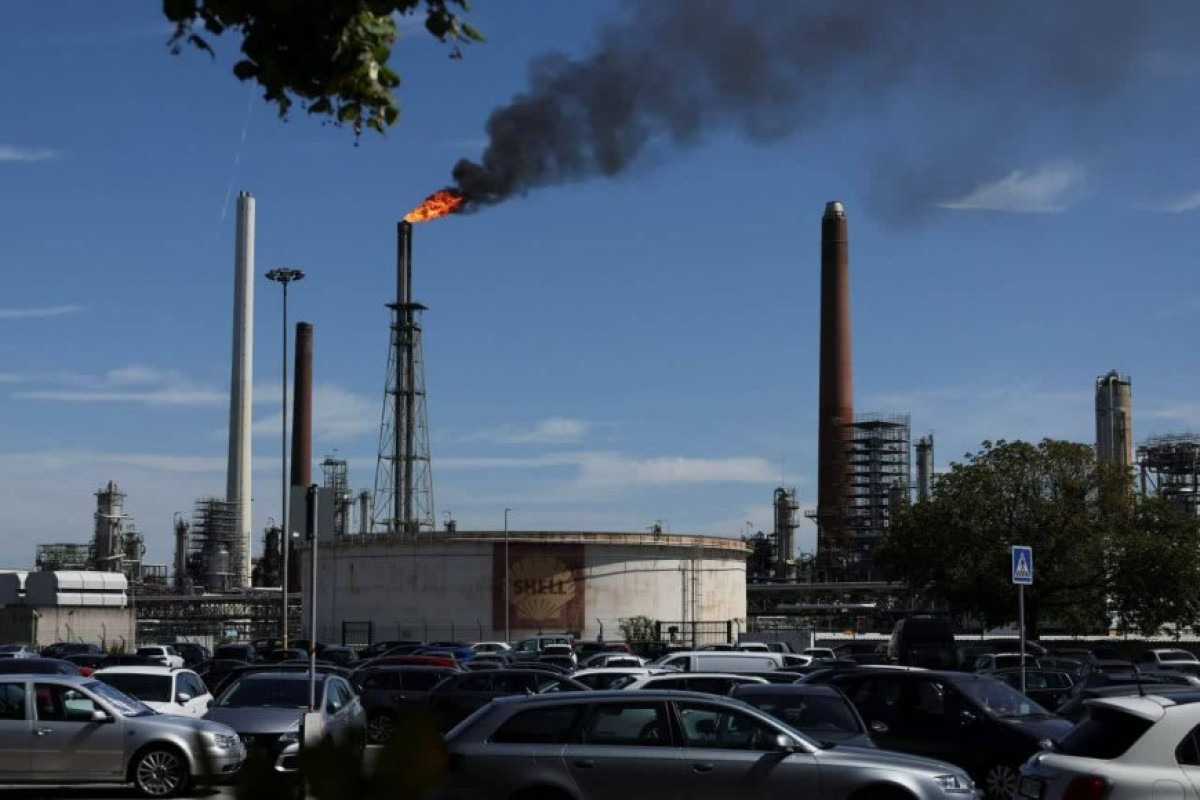 254
254
What Lies Ahead for Germany's Energy Crisis: Independence or Dependence?
What Lies Ahead for Germany's Energy Crisis: Independence or Dependence?
In the wake of the Ukraine conflict, Germany's decision to postpone its gas purchases from Russia and exert financial pressures on the Kremlin was undoubtedly a bold move. Yet, as a country heavily reliant on Russia for over 50% of its gas imports, Germany now finds itself confronted with a formidable challenge. While Berlin has managed to secure alternative sources to meet its energy needs, it becomes increasingly apparent that the issue at hand extends beyond mere diversification, exposing Germany’s unsolved energy crisis.
By: A. Mahdavi
From Germany's vantage point, aligning with sanctions against Russia was seen as an expression of support for Ukraine. The German government has consistently cited the war in Ukraine as a primary reason for distancing itself from Russia, seeking alternative energy partners instead. In this endeavor, Norway has emerged as a stable and dependable European ally for Germany. Additionally, Germany has looked to Qatar and the United States for gas imports. However, it is worth noting that Qatar has faced considerable scrutiny concerning human rights, particularly concerning the tragic deaths of numerous foreign workers during the construction of stadiums in preparation for the 2022 World Cup. Critics argue that, based on the human rights standards Germany has espoused, the country should also reconsider its liquid natural gas (LNG) purchases from Qatar.
Nevertheless, the German government has taken a pragmatic stance in order to ensure a reliable energy supply, ward off economic stagnation, and secure a long-term gas purchase agreement with Qatar. This raises important questions about how human rights standards are selectively applied, suggesting that governments prioritize adherence only when it aligns with their own national interests.
The Perils of Dependency
Germany has been at the forefront of efforts to wean itself off nuclear and fossil fuels, particularly coal, in a long-term program initiated over a decade ago. With its economy historically reliant on Russian gas, Germany capitalized on the advantage of affordable and low-cost gas, positioning itself as a pioneer in the nuclear phase-out. However, the eruption of the Ukraine conflict forced a reevaluation of German energy plans. Recognizing the need for diversification, Germany sought collaboration with several countries, including the United States, Qatar, and Norway, as crucial partners in supplying LNG.
In addition to grappling with the challenges posed by gas supply, the German government's plans to construct gas-fueled power plants have raised concerns among energy and foreign policy experts. Many view this endeavor as both irrational and imprudent, especially for a country already burdened with substantial gas supply challenges and costs. Critics argue that Germany should rather focus on alternative energy sources, but the government contends that it can mitigate its weaknesses through investment in renewable energy. Their ambitious plans aim to derive a significant portion of energy resources from renewables, eliminating dependence on LNG by 2050.
Exploring a Sustainable Future
Acknowledging the perils of relying on a single supplier, Germany seeks a European and multilateral solution to ensure energy security. The country has forged agreements with Belgium and the Czech Republic to diversify its gas resources and has engaged several European companies in these initiatives. The German government recognizes that energy security is best achieved through a diverse array of partners, drawing from past experiences to compensate for vulnerabilities. However, this pursuit comes at a considerable cost, with a significant burden likely to fall upon the people. For instance, Germany's goal of achieving liquid gas storage by 2028 necessitates a 20% reduction in consumption across all levels. Consequently, even a slight drop in winter temperatures presents a formidable challenge, one that will disproportionately impact the German population.
Hence, the German government, in a pragmatic fashion, must explore additional energy suppliers. Countries like Iran could offer a cost-effective and economical option for Germany if the nation adopts an independent and rational approach to energy supply. By considering this possibility, Germany could unlock vast untapped capacities. The outcome of this deliberation and the performance of Chancellor Olaf Scholz’s administration will be closely monitored as time progresses.
In conclusion, Germany finds itself entwined in a precarious balancing act, striving to achieve energy independence while navigating a complex web of geopolitical considerations and human rights concerns. The nation's future energy landscape remains uncertain, but its resilience and willingness to adapt may hold the key to a sustainable and prosperous future.
 254
254
Comment
Post a comment for this article